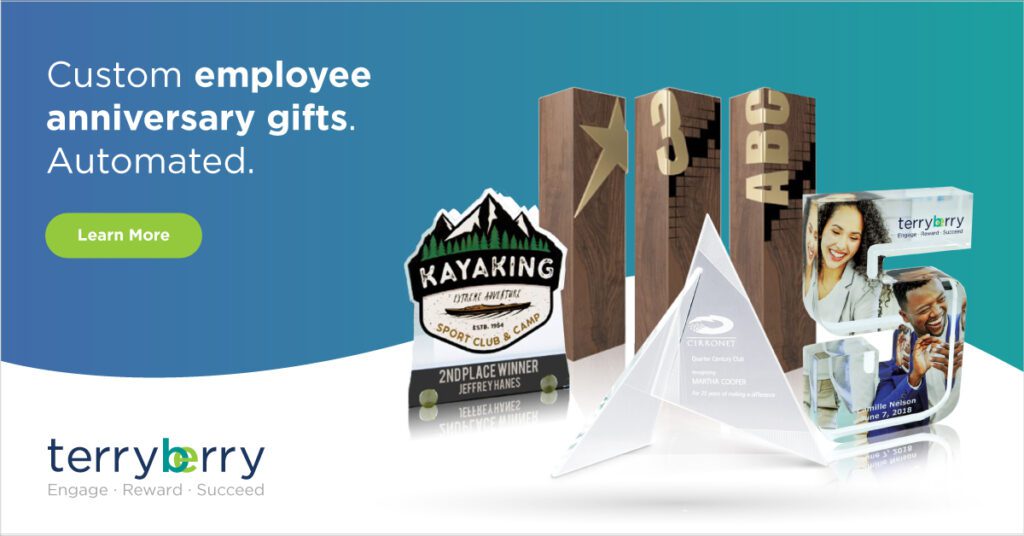June 21, 2024


As companies cope with the challenges and opportunities of the 21st century, businesses that prioritize diversity, equity, and inclusion (DEI) find themselves better equipped to innovate, adapt, and thrive.
DEI initiatives aren’t just about ticking boxes or meeting quotas—they’re about creating a profound transformation in the ways you foster a more inclusive, equitable, and diverse work environment. Unfortunately, that’s easier said than done.
Below, we’ll walk you through everything you need to know about DEI initiatives to effectively create and implement them at your business. We’ll start with a quick primer to get on the same page before we dive into actionable tips and best practices.
DEI Primer: What Is Diversity, Equity, and Inclusion?
People often use the terms diversity, equity, and inclusion interchangeably, but they don't mean the same thing. Each has a distinct meaning and individual significance. Together, they form a framework for creating workplaces that are not only diverse but also fair and inclusive.
Diversity
Diversity refers to the presence of differences within your organization. This can encompass ethnic diversity as well as a wide range of attributes, such as the following:
- Race and Ethnicity: Recognizing and valuing different racial and ethnic backgrounds. Promoting racial and ethnic diversity is crucial for creating a more inclusive company culture, addressing discrimination and bias, and fostering a more just and equitable society.
- Gender and Gender Identity: Ensuring representation across the gender spectrum.
- Age: Appreciating the strengths and perspectives of different age groups.
- Socioeconomic Status: Acknowledging the experiences of individuals from varied economic backgrounds.
- Religion: Respecting (and accommodating) various religious beliefs and practices.
- Sexual Orientation: Recognizing and valuing different sexual orientations.
- Physical and Mental Abilities: Creating an inclusive culture where individuals of all abilities can thrive.
Equity
While diversity focuses on the presence of differences, equity is concerned with ensuring fairness in treatment, access, and opportunity. It recognizes that now all individuals start from the same place (due to systemic disadvantages), and equal treatment isn't always represented by equal outcomes.
Equality and equity often get confused. Equality means that everyone in your organization gets access to the same resources and opportunities, but equity would insist that everyone gets fair access according to their needs.
For example, it would be equitable if someone with carpal tunnel gets a specific keyboard and mouse that supports their injury. While it would be equal for everyone to have these accommodations, it's not necessarily beneficial or helpful for everyone to have these tools.
Equity seeks to address imbalances and ensure everyone has the resources and opportunities to succeed, regardless of their background or identity.
Inclusion
Inclusion goes beyond numbers and representation. It's about creating an inclusive work environment where everyone feels valued, respected, and supported.
An inclusive workplace does the following:
- Active Participation: Ensures that diverse voices are present and actively involved in decision-making processes.
- Equal Access: Guarantees that all employees (regardless of their background) have equal access to resources, opportunities, and career advancement.
- Celebration of Diversity: Organizes events, workshops, and training sessions that celebrate and value its members' diverse backgrounds and experiences.
- Feedback Mechanisms: Establishes channels for employees to voice concerns, provide feedback, and suggest improvements related to DEI.
- Mentorship and Sponsorship: Offers programs that connect underrepresented groups with mentors or sponsors to guide their professional growth.
- Flexible Work Arrangements: Recognizes and accommodates the diverse needs of employees, such as parental leave, religious observances, or health requirements.
- Safe Spaces: Creates environments or forums where employees can share experiences, concerns, or ideas without fear of retribution.
Organizations that foster inclusion not only enhance the well-being and satisfaction of their diverse employees, but they also tap into a wealth of different perspectives—leading to better decision-making and innovation.


What Are DEI Initiatives?
Your company doesn't build DEI values by paying them lip service alone—you need to take action. And that's where DEI initiatives come into play.
DEI initiatives are the strategic programs organizations implement to promote diversity, equity, and inclusion within their workforce. These initiatives aim to create a more inclusive environment where all individuals (regardless of background or identity) feel valued, respected, and empowered to achieve their full potential.
You'll need to be intentional with the DEI initiatives you create and prioritize for your business. Too many, and you'll lose track and participation. Too scattered, and you might not achieve your desired cultural diversity outcomes.
Focus on your company's challenges and where you need to improve. For example, you might have a diverse workplace that needs to be more inclusive. In that case, you don't necessarily need to focus on diversity initiatives—instead, you need to prioritize inclusivity initiatives.
Here's what these different initiatives can look like:
Diversity Initiatives
These are efforts to increase the representation of different groups of diverse talent within your organization. They can include:
- Recruitment Programs: Targeted efforts to attract candidates from underrepresented backgrounds.
- Diverse Supplier Programs: Commitments to source goods and services from diverse vendors, such as minority-owned or women-owned businesses.
- Cultural Celebrations: Events and programs that celebrate different cultures, religions, and significant dates, such as Black History Month or Pride Month.
RELATED: How to Celebrate Pride Month at Work: 10 Ideas to Start Today
Equity Initiatives
Equity initiatives focus on ensuring fairness in processes, practices, and opportunities. Examples include:
- Pay Equity: Regular reviews to ensure employees are compensated fairly regardless of gender, race, or other factors.
- Promotions: Programs that ensure individuals from all backgrounds have equal opportunities to rise within the organization.
- Training and Development: Offering resources and training to help employees understand (and avoid) unconscious biases.
Inclusion Initiatives
Inclusion efforts aim to create a welcoming environment where everyone feels they belong and can contribute. These could include:
- Leadership Training: Equipping leaders with the skills to foster an inclusive culture.
- Employee Resource Groups (ERGs): Groups formed around shared characteristics or experiences to provide support and advocacy. Groups could include a Women's Network or LGBTQ+ Alliance.
- Feedback Mechanisms: Establishing channels for employees to voice concerns, provide feedback, or suggest DEI improvements.
- Mentorship Programs: Connecting underrepresented groups with mentors or sponsors to guide their professional growth.
- Inclusive Communication: Ensuring that internal and external communications are free from biased language and are accessible to everyone.
- Financial Wellness Programs: Help set your employees up for success outside of the workplace with a financial wellness program designed to give them basic wealth management skills.


Why Are DEI Initiatives Important?
DEI's importance is obvious from a moral perspective. Everyone deserves fair treatment and opportunity in the workplace, regardless of background, identity, or upbringing. Focusing on DEI simply makes the world a better place, and that's a cause worth fighting for (or, at the very least, investing in).
However, workplace DEI initiatives serve a purpose beyond the moral compass. They're not just a human solution—they also drive better business outcomes:
- Hiring: 76% of job seekers consider workplace diversity an important factor when evaluating companies and job offers.
- Cash Flow: Companies that champion diversity often see a staggering 2.5x increase in cash flow for every employee.
- Performance: Firms where female executives make up more than 30% of the leadership tend to outshine those where women hold just 10% to 30% of executive roles.
- Productivity: Teams that prioritize inclusivity consistently outperform their counterparts, boasting a 35% boost in productivity.
- Decision-Making: When it comes to making sound business decisions, gender-diverse teams get it right 73% of the time.
- Revenue: Diverse leadership teams often lead to financial success—experiencing an average revenue boost of 19% compared to their less diverse peers.
DEI initiatives aren't a nice-to-have—they're a need-to-have. Companies can unlock everything from better decision-making to better profit margins by simply embracing diversity, equity, and other inclusion programs.
However, that's easier said than done.
Challenges With Implementing DEI Initiatives
While DEI initiatives are good for business (and the world), implementing them isn't without challenges. We can't predict every obstacle you could encounter, but here are a few typical hurdles businesses face when creating DEI training programs and initiatives:
- Resistance to Change: Employees accustomed to a certain workplace culture might resist changes, especially if they view DEI initiatives as unnecessary or threatening.
- Tokenism: Some businesses make the mistake of promoting diversity superficially and only hiring or promoting diverse individuals for the sake of impressions and numbers.
- Inadequate Training: Employees need the proper training and education to effectively promote and implement DEI initiatives.
- Lack of Leadership Buy-in: If senior management doesn't fully support or understand DEI initiatives, it can be challenging to secure resources or drive meaningful change.
- Unrealistic Expectations: Some businesses might expect immediate results from DEI initiatives. It's not an overnight shift—sometimes, it'll take months and years to see the results.


Tips and Best Practices for Implementing DEI Initiatives
Obstacles might get in your way, but that doesn't mean the juice isn't worth the squeeze. Here are a few tips and DEI best practices to help improve your chances of success:
Secure Leadership Commitment from Chief Diversity Officer
Leadership's buy-in (and participation) set the tone for the entire organization. Their actions, or lack thereof, send a strong message to all employees about what's truly valued. Your executives and managers control budgets and resources. Securing their commitment ensures the necessary funding and support for your DEI initiatives.
Set Clear Objectives
Your DEI goals serve as a roadmap, helping keep you on course and ensuring alignment throughout your organization. Define what success looks like, whether that's achieving a specific representation in leadership roles or improving employee satisfaction scores among underrepresented groups.
Provide Comprehensive Training
Successful DEI initiatives hinge on well-thought-out training that educates and empowers your diverse workforce. Awareness is just the beginning. You need to equip your employees with the tools and know-how to recognize unconscious biases and foster inclusive environments.
Avoid Facades
Tokenism can undermine your genuine DEI and diversity efforts. Move beyond symbolic examples and focus on creating an environment where every individual's contributions are recognized based on merit. Create a safe place for diverse perspectives and incorporate them intentionally into the decision-making process.
Review and Revise Policies
As societal understanding of diversity, equity, and inclusion evolves, so should your company guidelines. Regularly revisit your policies to identify gaps and emerging challenges. Make ongoing changes to your DEI goals and objectives, and don't be afraid to try new DEI initiatives or abandon ones that might not be moving the needle.
Engage Your ERGs
First, if you don't have ERGs, form them. Once you have ERGs, engage them. Get their perspectives, co-create an inclusive DEI strategy, and make them a key part of your feedback mechanisms. Leveraging the power of ERGs ensures your DEI initiatives aren't top-down mandates—instead, they're collaborative efforts rooted in genuine employee experiences.


Must-Have DEI Initiatives to Implement in the Workplace
The scope of DEI initiatives can be incredibly vast and overwhelming. Don't let the pool of opportunities slow you down—you have to start somewhere.
Consider the following DEI initiatives as the groundwork for a more inclusive and equitable workplace. You might find other gaps or initiatives worth starting in the future, but these are the must-haves you should start with:
1. Bias Training
Your employees can't support your DEI initiatives if they don't know how. Give your employees a basic understanding to help them recognize and address unconscious prejudices that could be afflicting your workforce. Help them learn about the manifestations of bias and equip them with the confidence, tools, and know-how to challenge and mitigate them.
Workplace Diversity Initiatives
An inclusive workplace doesn't start when you enter the office—it begins during the hiring process. Here are a few strategies your recruitment team and hiring managers can adopt to eliminate biases from the get-go and start hiring more diverse candidates:
- Blind recruitment
- Diversified interview panels
- Job description audits
- Diverse job boards (such as Women Who Code, Getting Hired, or Jopwell)
- Structured interviews
- Skill-based assessments
- Hiring manager training
- Transparent salary ranges
- Relocation assistance
- Flexible work options
- Feedback mechanisms for candidates
Integrate these recruitment strategies into your hiring practices to attract diverse candidates and create a workplace that values workplace diversity from the first interaction.
3. Employee Resource Groups
ERGs play an important role in a diverse team, fostering a sense of belonging and community. They can be centered around race, gender, sexual orientation, disability, religion, or other factors your employees identify with.
These groups provide members with a platform for mutual support, professional development, and advocacy. It gives your employees like-minded friends and helps build a home away from home.
4. Cultural Events and Awareness Day Celebrations
Recognizing and celebrating diverse communities through cultural events demonstrates your organization's commitment to diversity and inclusion. These celebrations not only educate employees about different cultures, histories, and social issues but also foster a sense of respect and appreciation for the backgrounds represented within a diverse workforce.
Events and awareness days could include the following:
- Black History Month
- Pride Month
- International Women's Day
- Asian Pacific American Heritage Month
- Juneteenth (June 19)
- Hispanic Heritage Month
- Native American Heritage Month
Tailor these celebrations to your workforce. For example, if you have members of the Islamic faith, you might consider recognizing Ramadan. Or if you have any Hindu employees, consider celebrating Diwali.
5. DEI Committee or Task Force
Form a dedicated group (comprised of members from various backgrounds, departments, and levels of seniority) to serve as the driving force behind your DEI initiatives. Your DEI committee will review workplace diversity practices, set DEI objectives, and create actionable strategies for achieving them.
Having one focused team ensures your whole DEI initiative and efforts are consistent and well-coordinated. It also demonstrates your business's commitment to creating a more inclusive workplace.
6. Transparent Reporting on DEI Progress
Transparent reporting keeps your business accountable. It also builds trust with employees, stakeholders, potential hires, customers, and the broader community.
Openly share data, achievements, and challenges. Be responsible and share progress consistently, even when it's not headed in the right direction. Regularly publishing diversity metrics, employee survey data, updates on set objectives, and future plans inspires confidence and encourages continuous improvement.
7. Recognition and Feedback Tools
Recognition tools empower your organization and its employees to celebrate and reward every employee for their contribution to the company—everyone deserves to feel seen and valued.
Feedback mechanisms provide employees with a platform to voice their experiences, concerns, and suggestions related to DEI initiatives. Your company can use this feedback to fine-tune DEI initiatives, address potential gaps, and ensure your DEI efforts resonate with the entire workforce.
RELATED: What is an Employee Engagement Survey? And Why Should You Care?
Launch Your DEI Initiatives With Terryberry
Your business's DEI initiatives are the foundation to an inclusive workspace. Everything from bias training to inclusive recruitment practices drives your company leaders and organization towards diversity, equity, and inclusion for all.
While your DEI journey won't be free of bumps, curves, and accidents, you don't have to do it all alone—we're here to help. Terryberry has designed a comprehensive Employee Engagement Platform to help evolve your company culture.
Whether you need feedback and communication tools, recognition software, a rewards platform, or engagement survey solutions, we've got you covered. Schedule a demo to see how you can transform employee engagement with one powerful platform.


